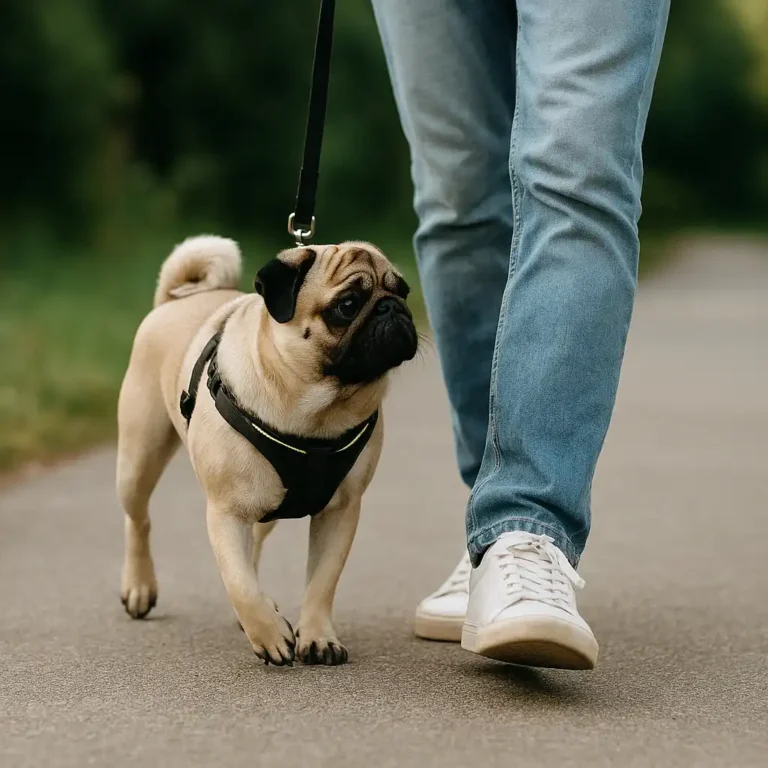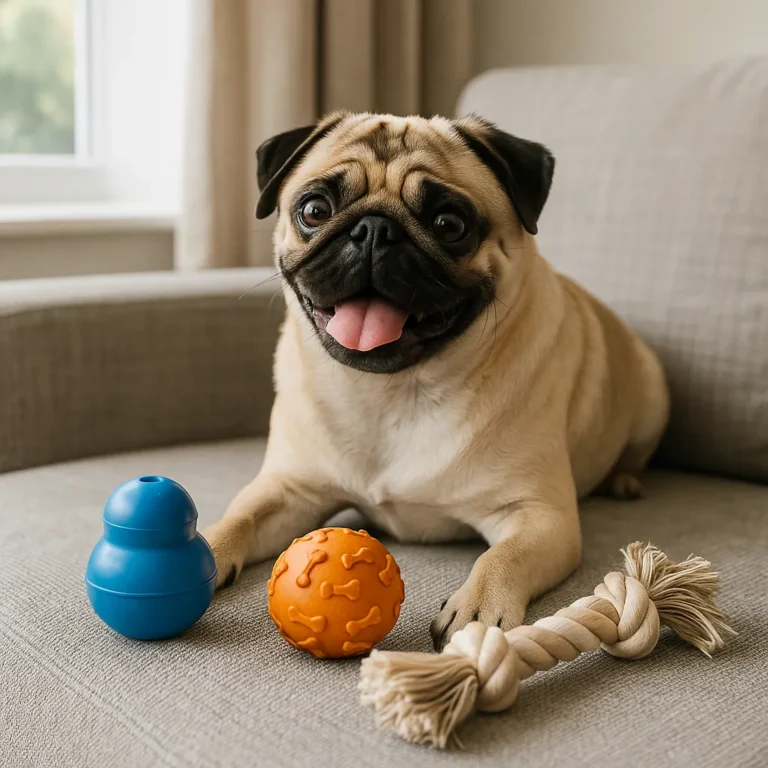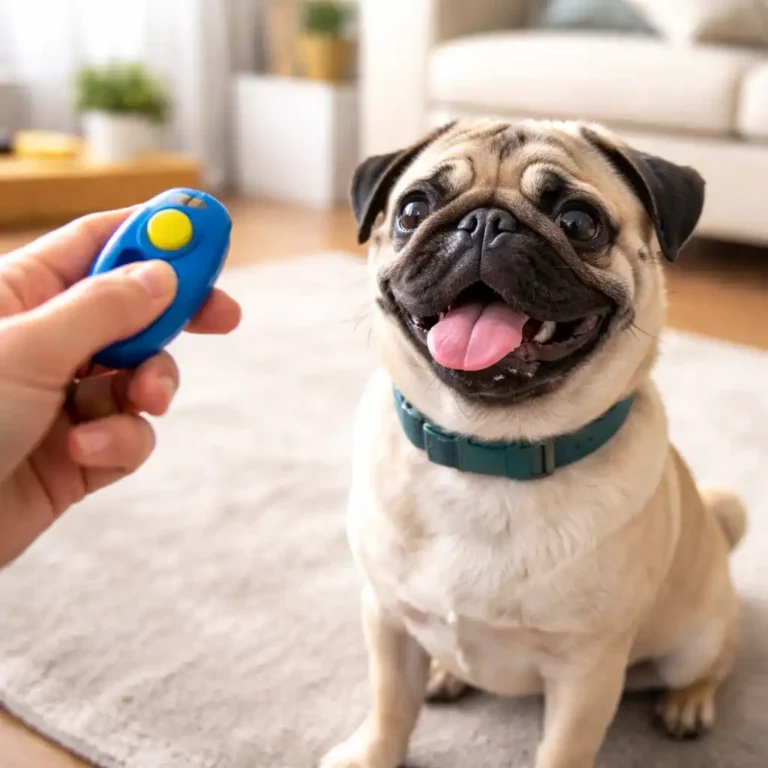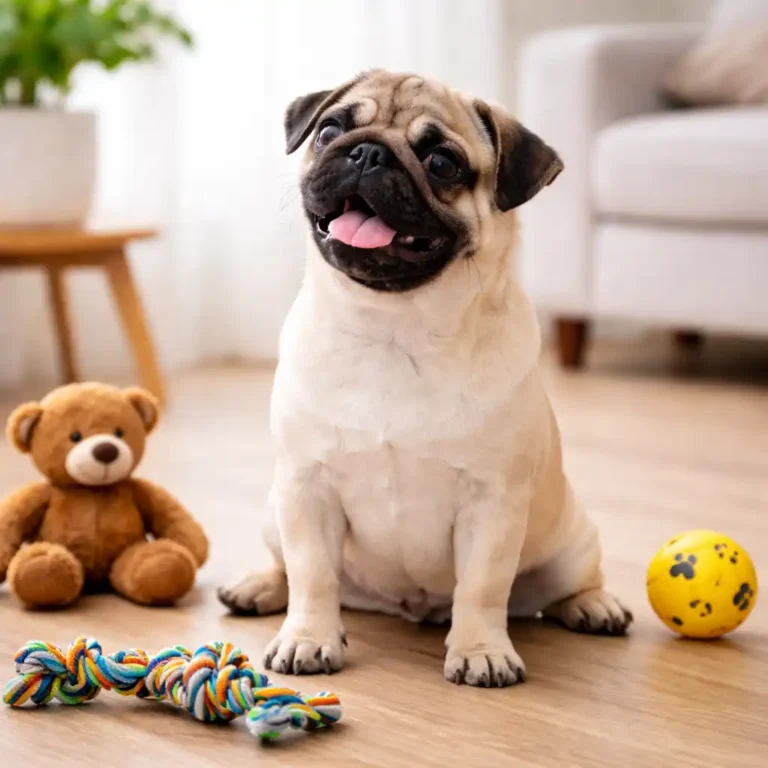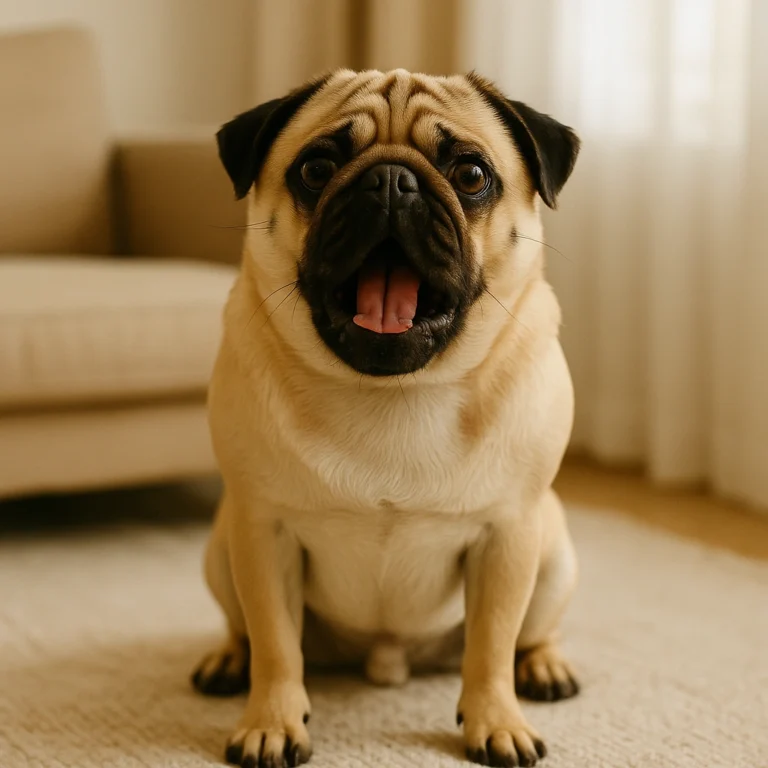Can Pugs Be Emotional Support Animals? Here’s Why They’re Surprisingly Good at It
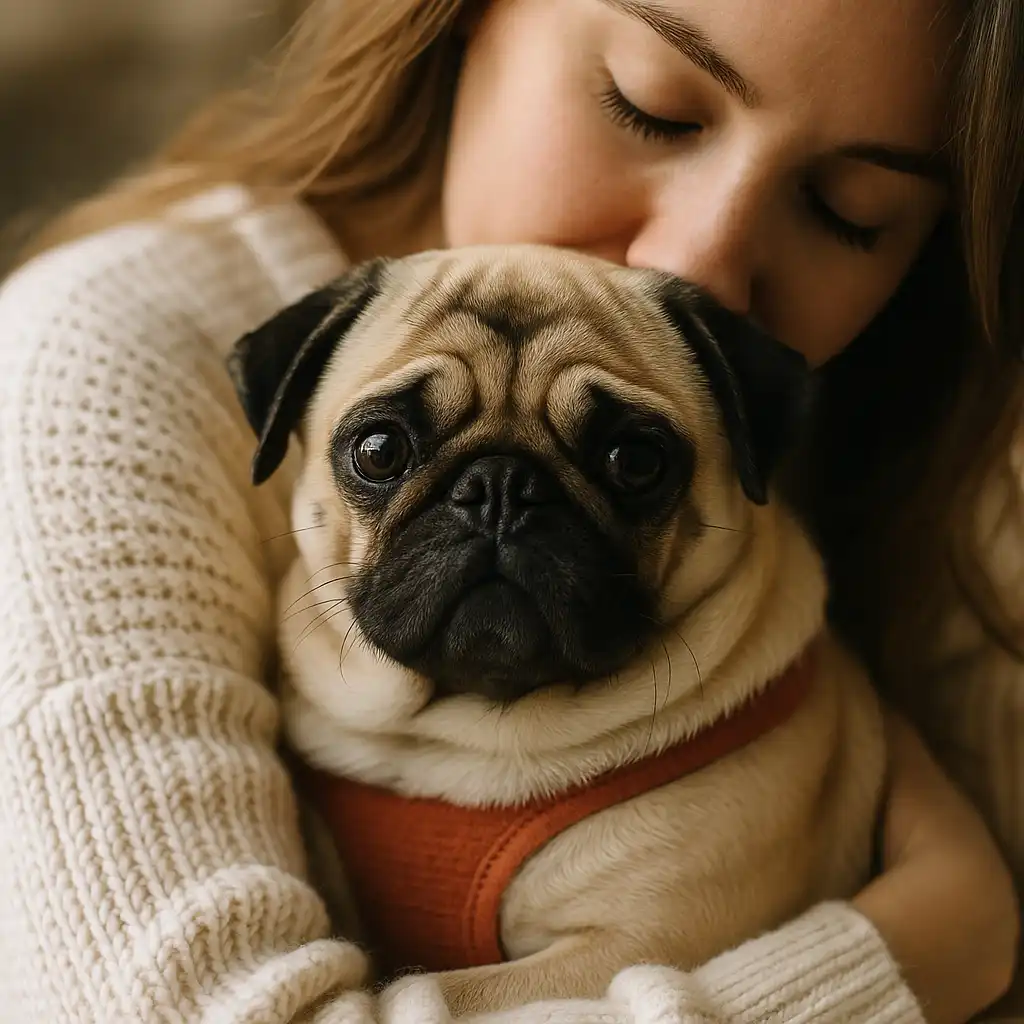
Disclosure: This post contains affiliate links. As an Amazon Associate, I earn from qualifying purchases—at no extra cost to you.
Pugs are natural companions. With their squishy faces, goofy sounds, and endless desire to be close to their people, they bring comfort in a way few breeds can. That’s why many pug owners look into registering their dogs as emotional support animals (ESAs)—and it turns out, they’re actually a great fit for the role.
Pugs may not perform specialized tasks like service dogs, but they shine in emotional support thanks to their loyalty, calm energy, and ability to read their owner’s moods. Let’s take a closer look at what makes them such effective companions—and what you should know if you’re thinking about making your pug an ESA.
Why Pugs Make Surprisingly Great Support Companions
Most pugs don’t just want attention—they crave connection. They’re known for following their person from room to room, settling into laps, and staying close during quiet moments. For someone dealing with anxiety, depression, or chronic stress, that constant presence can feel incredibly grounding.
Many pug owners report their dogs seem to notice when something’s wrong. They might not know why you’re upset, but they’ll lean in, stay nearby, or gently paw for attention. These little signs of emotional attunement help explain why pugs are often so comforting to live with—especially for people who need steady, nonjudgmental support throughout the day.
What Makes Them a Good Fit
Some dog breeds just naturally click with the needs of ESA work, and pugs bring a lot to the table. Here’s why they tend to excel in this role:
- They’re calm: Most adult pugs have an easygoing temperament. They’re not loud or reactive, and they usually adapt well to calm indoor environments.
- They form strong bonds: Once a pug picks their person, they stick with them like glue. That kind of loyalty creates a strong foundation for emotional support.
- They’re the perfect size: Pugs are small enough to travel easily, fit in shared living spaces, or accompany you to a therapy session without overwhelming anyone.
- They’re generally friendly: With early socialization, pugs tend to be gentle and accepting of new people and settings.
Their strong attachment to their owners can sometimes lean toward clinginess, so it’s important to create a healthy balance and give them space to rest independently when needed.
What to Know Before Registering a Pug as an ESA
Being an ESA isn’t just a label—it comes with expectations. And while pugs are emotionally supportive, there are a few things to keep in mind before registering yours.
First, their health. Pugs are a brachycephalic breed, which means their flat faces can make it harder for them to breathe, especially in heat or stressful situations. If you’re planning to take your pug into busy environments or travel with them often, you’ll need to make sure they’re physically comfortable and well-prepared.
Second, emotional support animals aren’t the same as service dogs. ESAs aren’t allowed in all public spaces, and access often depends on housing or airline policies. You’ll also need a letter from a licensed mental health professional to qualify for ESA accommodations.
Real Talk from the Pug Community
In many pug owner groups and forums, you’ll find stories about these dogs instinctively offering comfort—lying close during tough nights, pawing at their owners during panic attacks, or simply refusing to leave their side when something feels off.
These aren’t trained behaviors. They’re just part of what makes pugs so emotionally in tune. Their quiet loyalty and physical closeness often provide more comfort than words ever could.
Conclusion
Pugs may not wear vests or learn complex commands, but they bring real emotional support to the people who love them. Their calm energy, close bonds, and steady companionship make them excellent ESAs for many situations.
If you’re considering your pug for this role, just make sure their health and personality fit your needs. With the right setup, your pug won’t just be a pet—they’ll be a calming presence in your life, day after day.

